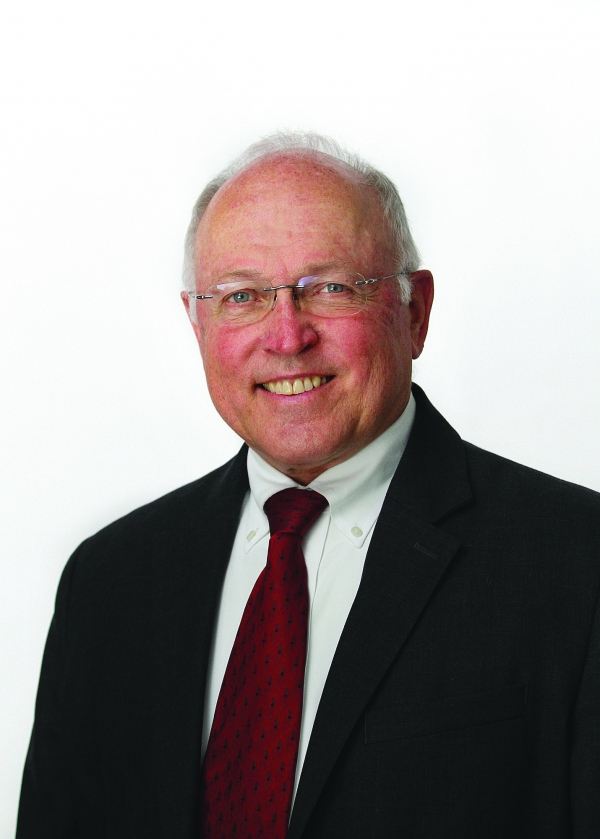John Fredrich is a political idealist who also happens to be steeped in the gritty details of Palo Alto's zoning debate.
He calls himself a residentialist, but unlike most other Barron Park residents who go by that label, he supported Measure D last year.
He is also perhaps the least known and best informed five-time City Council candidate in Palo Alto's history.
A retired Gunn High School civics teacher, Fredrich is running for council after an 11-year political hiatus (his prior runs were in 1975, 1977, 1981 and 2003). He seeks no endorsements and plans to limit campaign spending to whatever it takes to buy 50 lawn signs and some door hangers.
Like most non-incumbents on the November ballot, Fredrich argues that the current council is out of touch with the populace when it comes to growth. He's particularly concerned about office space, even more specifically about the dense new buildings that have been proposed (and in some cases approved) around downtown and California Avenue in the last few years.
"We have to slow down the office space vis a vis housing if we're ever to bring down the housing imbalance," Fredrich told the Weekly.
As is fitting a civics teacher, the Wisconsin native is passionate about the theory of politics. At the Oct. 2 debate sponsored by Palo Alto Neighborhoods, Fredrich introduced himself to the audience by reading from the Declaration of Independence and closed by quoting Franklin D. Roosevelt. Yet he is able to get excited when talking about things like height exceptions (he hates them) and granny units (he likes them).
Fredrich said he entered the race because he's become disappointed at recent development trends, particularly in such areas as the congested intersection of Page Mill Road and El Camino Real. He's also become disappointed in what he calls "the inability of the council to deal with things in a straight way and keep people informed in a timely manner and make decisions in the interests of the whole community." When Fredrich last ran in 2003, he called the local council "too cliquish." Now, he is seeing a similar phenomenon. With more time on his hands now, he believes the climate is ripe for him to make his contribution.
Every year, the city releases the results of citizen surveys that indicate that Palo Altans have far more trust in their local government than they do in their elected leaders on the county, state and federal levels. Fredrich takes the opposite stance, as his answer to a recent questionnaire from the group Palo Alto Neighborhoods indicates.
"While I retain great confidence in government itself at all levels in our nation, I have almost no confidence in the current office holders at every level, especially the Palo Alto City Council," Fredrich wrote. "As a group, they seem particularly under-informed and prone to group-think. They do not appear fully prepared in the council meetings, exhibit no economy of language and clarity in expressing their positions, and predominantly choose to ignore many of their constituents."
Fredrich said he supported Measure D, which would have upheld a council-approved housing development on Maybell Avenue, because he feels the city has a deep need for senior housing (the development included 60 apartments for low-income seniors). To increase the city's housing stock, Fredrich advocates allowing more in-law units and small additions to existing properties, particularly on "larger lots that would not intrude on neighbors, such as corner lots, neighborhoods with alleys, and so on."
Otherwise, Fredrich has said he opposes changing sites' zoning to allow large commercial developments. While much of the talk around town has centered on downtown's parking and traffic woes, Fredrich said he is concerned about the building boom taking place around California Avenue. He points to Stanford University's new residential development El Camino Real and the slew of commercial projects in the area that have recently received approval. Each of these, he noted, is going up near the already congested intersection of Page Mill and El Camino. Yet the city isn't looking at the cumulative impacts of all these changes, Fredrich argues.
"Instead of getting our ducks in a row, it's getting our albatrosses in a row," he said. "We have serious issues that need to be managed in a coordinated way."
Fredrich disagrees with the council on other issues as well. He disapproves of the council's behavior in 2012, when members held undisclosed meetings with developer John Arrillaga to discuss his proposal for an office-and-theater complex. He is dismayed by the council's approval of the lane reduction on California Avenue (the decision, he said, was motivated more by grant funds than by citizens' wishes) and by the long delayed reconstruction of the Mitchell Park Library and Community Center. He also believes the council overreached last year when it instituted a ban on car camping, a law that is now suspended because of a legal ruling in Los Angeles. Any disturbances from individuals living in their cars on residential streets can be handled by current laws, including ones on disturbing the peace.
Fredrich wrote in the PAN questionnaire that the events of recent years demonstrate "a rare consistency of mismanagement" and little inclination by city officials to explain themselves to the public. He vows not to be beholden to "any deep-pocket contributors," and he is not seeking any endorsements (though he will accept them, if offered). For the retired teacher, the trends of rapid growth and insufficient transparency are connected. If elected, he said, he plans to address both.
"Courage and integrity are important forces for restoring some trust that the government can slow the pace of change and protect the public interest," he wrote.
• To read about where John Fredrich stands on issues including development, transportation and housing, see the Weekly's PDF edition.



Comments